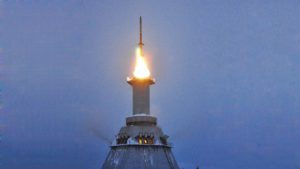BAYERN-CHEMIE and DLR sign contract for solid fuel rocket engines for altitude research
Hello reader!
Below you can read the news "BAYERN-CHEMIE and DLR sign contract for solid fuel rocket engines for altitude research", published on MBDA's website, in 02/06/2020.
This is a hard blow against VSB-30’s market!
Congratulations to those who took the VSB-30 project from the IAE!
Rui Botelho
Brazilian Space

BAYERN-CHEMIE and DLR sign contract for solid fuel rocket engines for altitude research
February 06, 2020

Launch of an altitude research rocket. (Credit: www.mbda-systems.com)
Aschau am Inn, 06 February 2020 – Rocket propulsion technologies from Bavaria will in future support the altitude research of the German Aerospace Centre (DLR). BAYERN-CHEMIE, a subsidiary of MBDA, and the Mobile Rocket Base (MORABA) department of DLR’s Space Operations and Astronaut Training facility have signed a contract for the development and manufacture of propulsion systems for rockets used in altitude research.
MORABA has developed a unique mobile infrastructure and hardware that enables the launch of an altitude research rocket at any time and from any place on earth. The rocket’s dual-stage configuration will primarily use a new solid fuel rocket engine from BAYERN-CHEMIE as a lower-stage.
This new engine is the largest ever developed and built by the company, using more than 800 kg of fuel. Basing the design of the engine on existing air defence applications however, will minimise risks, costs and development time. The specific performance of the engine will provide enhanced capability and performance of the rocket. With new engines at the lower and upper stages, the research rockets can then carry payloads of 400 kg at altitudes of up to 260 km.
Dr. Wolfgang Rieck, Managing Director of BAYERN-CHEMIE, commented on the conclusion of the contract: « Altitude research is an exciting field of application for our technologies. It makes us proud to have been selected by DLR to support pioneering projects in altitude research with our rocket engines, thus enabling technological, materials science and biological experiments under quasi-weightlessness.
Prof. Dr. Felix Huber, Director of Space Operations and Astronaut Training at DLR, said, We are delighted to have won a strong partner in this contract with BAYERN-CHEMIE GmbH and to be able to develop a tailor-made rocket engine for our research missions. We are actively expanding our rocket engine family and the service portfolio of the Mobile Rocket Base and provide scientists with the usual high-quality flight opportunities.
Comentários
Postar um comentário